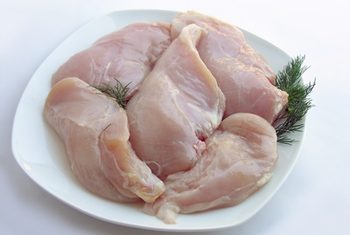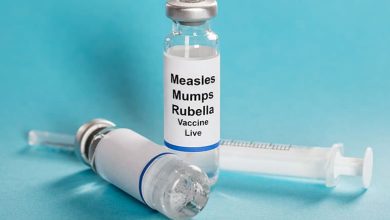
Protein has more physiological roles than any other nutrient.
Protein is considered a macronutrient, which means that your body needs it in large amounts every day to function properly. When you eat protein, your body breaks it down into amino acids that are used for several purposes. Protein can provide your body with energy when necessary, but you should not rely on protein as a primary energy source because it has more important physiological roles to play, according to “Nutrition and You” by Joan Salge Blake.
Immune Function
Your immune system relies heavily on proteins. When your body is exposed to potentially harmful substances, such as bacteria or a virus, your immune system sends out proteins called antibodies. These antibodies seek out and attack the virus or bacterium in an attempt to neutralize it and prevent it from multiplying and causing illness.
pH Balance
Your bodily fluids – blood, saliva, etc. – function best at a neutral pH, or approximately 7.0. Many things that you encounter daily, such as foods, beverages and pollution, can change the pH of bodily fluids. A drastic and persistent change in pH can lead to chronic symptoms and various health problems. The proteins in your body act as a buffers that help keep your pH neutral. When the pH of your blood becomes too acidic, the protein buffers in the blood will pick up hydrogen ions until the pH returns to neutral. If the pH becomes too high, or basic, protein buffers release hydrogen ions to lower the pH.
Structure and Movement
There is protein in every single cell in your body – from your hair to your nails to your muscles and organs. These proteins are known as structural proteins; they quite literally provide the structure for your body. Without them, you could not walk, run or even stand. In fact, the most abundant protein in your body is collagen, which is present in skin, ligaments, tendons and bones.
Transportation
Proteins also play a vital role in nutrient transport. They carry sodium and potassium into and out of cells in order to maintain the proper electrolyte balance. Proteins also carry vitamins, such as vitamin A, from your organs to your cells. A specific protein in your red blood cells, hemoglobin, is responsible for carrying oxygen from your lungs to your cells. Hemoglobin also takes carbon dioxide from your cells to your lungs, so that it can be expelled from the body.






